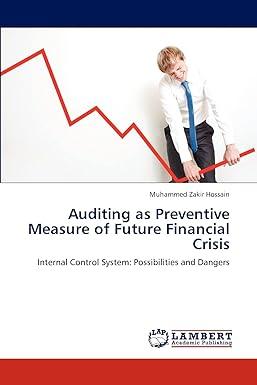Question
Present Value of an Annuity 1) On January 1, 2016, you win $2,600,000 in the state lottery. The $2,600,000 prize will be paid in equal
Present Value of an Annuity
1) On January 1, 2016, you win $2,600,000 in the state lottery. The $2,600,000 prize will be paid in equal installments of $260,000 over 10 years. The payments will be made on December 31 of each year, beginning on December 31, 2016. If the current interest rate is 5%, determine the present value of your winnings. Use Table 2. Round to the nearest whole dollar. $
2) Compute Bond Proceeds, Amortizing Premium by Interest Method, and Interest Expense
Evans Co. produces and sells motorcycle parts. On the first day of its fiscal year, Evans Co. issued $20,000,000 of four-year, 14% bonds at a market (effective) interest rate of 12%, with interest payable semiannually. Compute the following:
a. The amount of cash proceeds from the sale of the bonds. Use the tables of present values in Exhibit 4 and Exhibit 5. Round to the nearest dollar. $
b. The amount of premium to be amortized for the first semiannual interest payment period, using the interest method. Round to the nearest dollar. $
c. The amount of premium to be amortized for the second semiannual interest payment period, using the interest method. Round to the nearest dollar. $
d. The amount of the bond interest expense for the first year. Round to the nearest dollar.
3) Compute Bond Proceeds, Amortizing Discount by Interest Method, and Interest Expense
Lewis Co. produces and sells aviation equipment. On the first day of its fiscal year, Lewis Co. issued $40,000,000 of five-year, 10% bonds at a market (effective) interest rate of 12%, with interest payable semiannually. Compute the following:
a. The amount of cash proceeds from the sale of the bonds. Use the tables of present values in Exhibit 4 and Exhibit 5. Round to the nearest dollar. $
b. The amount of discount to be amortized for the first semiannual interest payment period, using the interest method. Round to the nearest dollar. $
c. The amount of discount to be amortized for the second semiannual interest payment period, using the interest method. Round to the nearest dollar. $
d. The amount of the bond interest expense for the first year. Round to the nearest dollar. $
4) Effect of Financing on Earnings Per Share
Three different plans for financing a $4,200,000 corporation are under consideration by its organizers. Under each of the following plans, the securities will be issued at their par or face amount, and the income tax rate is estimated at 40% of income.
| Plan 1 | Plan 2 | Plan 3 | |||||
| 10% bonds | _ | _ | $2,100,000 | ||||
| Preferred 10% stock, $40 par | _ | $2,100,000 | 1,050,000 | ||||
| Common stock, $4.2 par | $4,200,000 | 2,100,000 | 1,050,000 | ||||
| Total | $ 4,200,000 | $ 4,200,000 | $ 4,200,000 | ||||
Required:
1. Determine for each plan the earnings per share of common stock, assuming that the income before bond interest and income tax is $8,400,000. Enter answers in dollars and cents, rounding to the nearest cent.
| Earnings Per Share on Common Stock | |
| Plan 1 | $ |
| Plan 2 | $ |
| Plan 3 | $ |
2. Determine for each plan the earnings per share of common stock, assuming that the income before bond interest and income tax is $3,990,000. Enter answers in dollars and cents, rounding to the nearest cent.
| Earnings Per Share on Common Stock | |
| Plan 1 | $ |
| Plan 2 | $ |
| Plan 3 | $ |
3. The principal of Plan 1 is that it involves only the issuance of common stock, which does not require a periodic interest payment or return of principal, and a payment of preferred dividends required.
Step by Step Solution
There are 3 Steps involved in it
Step: 1

Get Instant Access to Expert-Tailored Solutions
See step-by-step solutions with expert insights and AI powered tools for academic success
Step: 2

Step: 3

Ace Your Homework with AI
Get the answers you need in no time with our AI-driven, step-by-step assistance
Get Started


